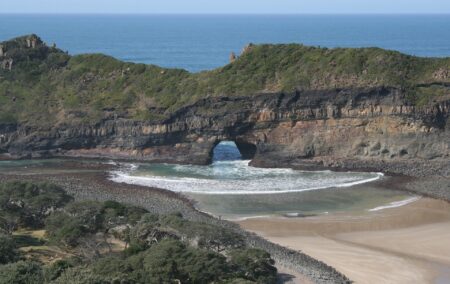My great grandfather arrived in the Transkei in 1862 and built a mission station near the town we now know as Tsolo.
But there was no town back then – just miles and miles of grassland. The area was inhabited by the Amapondisi, which is a tribe that no longer exists today.
Tsolo and the St Cuthbert’s mission station also look very different today. The grasslands are gone, destroyed by agriculture and the creep of the crowded metropolis of urban and peri-urban development that defines the region today.
The same is true of most of the Transkei. My family holidayed at Umngazi in the 1970s. It was a wonderful place. Miles of countryside unpopulated because of the ban on communal dwellings within a mile of the coast. But still very different from what it looked like when the British army camped there on their march to defeat at Isandlwana a few years later. And the paintings on the dining room wall of fish caught since the 1930s told its own story of how much the quality of the fishing had deteriorated.
A different place
Umngazi is a very different place today, as is the Wild Coast. The coastal housing ban no longer exists and people have moved in. A Google Earth tour of the coast shows a ribbon of heavily populated – and in places peri-urban or even near-urban – development along most of the coastline. Illegal cottages have sprung up everywhere and the coastal forests through which I wandered as a child are largely gone.
But the memory of the Wild Coast persists, as does the Transkei as a place of the old Africa. It is a rose-tinted image that hides a much harsher truth. The Transkei is dirt poor. People may see it as wild and beautiful, but the truth is that its population is far too large to support the kind of bucolic existence that those champions of traditional life wax lyrical about.
Must this be so and what will it look like a lifetime from now if it is forced to continue to develop in the haphazard hand-to-mouth way that defines the absence of choice that is poverty?
Is it preferable to embrace the fact of change and to initiate measures that will see the Transkei exploiting the limited resources it has to improve the lives of people rather than preserving the conditions that perpetuate poverty?
Unpopular point of view
One would think so, but this seems to be an unpopular point of view. The general inclination seems to be to vehemently attack anyone who proposes any development, be it a road or even the exploration of a development potential such as the seismic exploration that is to take pace off the Transkei coast.
But what would it mean to South Africa’s future if a gas field were to be found off the Wild Coast?
It won’t be the end of whales, that much is certain. Whale numbers will continue to grow, as they have elsewhere in the world. Also we need to recognise that we are rapidly losing the ability to generate electricity. Gas-generated electricity is quicker to bring on line and is much cleaner than coal. It is still widely used in Europe, for example, where the economy would shut down without it.
A decent future or a horrible one?
The truth is that such a find, if handled properly, could make the difference between South Africa having a decent future or having a horrible one. Likewise, would it not be easier to encourage doctors, teachers, nurses, and other skills into the rural Transkei if it had decent roads and services?
A friend who lives in a rural community on the Transkei coast recently complained: ‘Where are all these protesters when a clinic or a hospital closes, or a school exists in name only or when the water supply fails for months or there is no electricity?’
It is a good question.
It is as if the grinding poverty that is life for many in the Transkei must be preserved to protect a sense of place that only exists in the protesters’ imaginations. It should not be this way but sadly it is, and one must assume that it sells news, judging by the widespread support of these protests in the press.
The adage of being careful what you wish for springs to mind.
The views of the writer are not necessarily the views of the Daily Friend or the IRR
If you like what you have just read, support the Daily Friend

